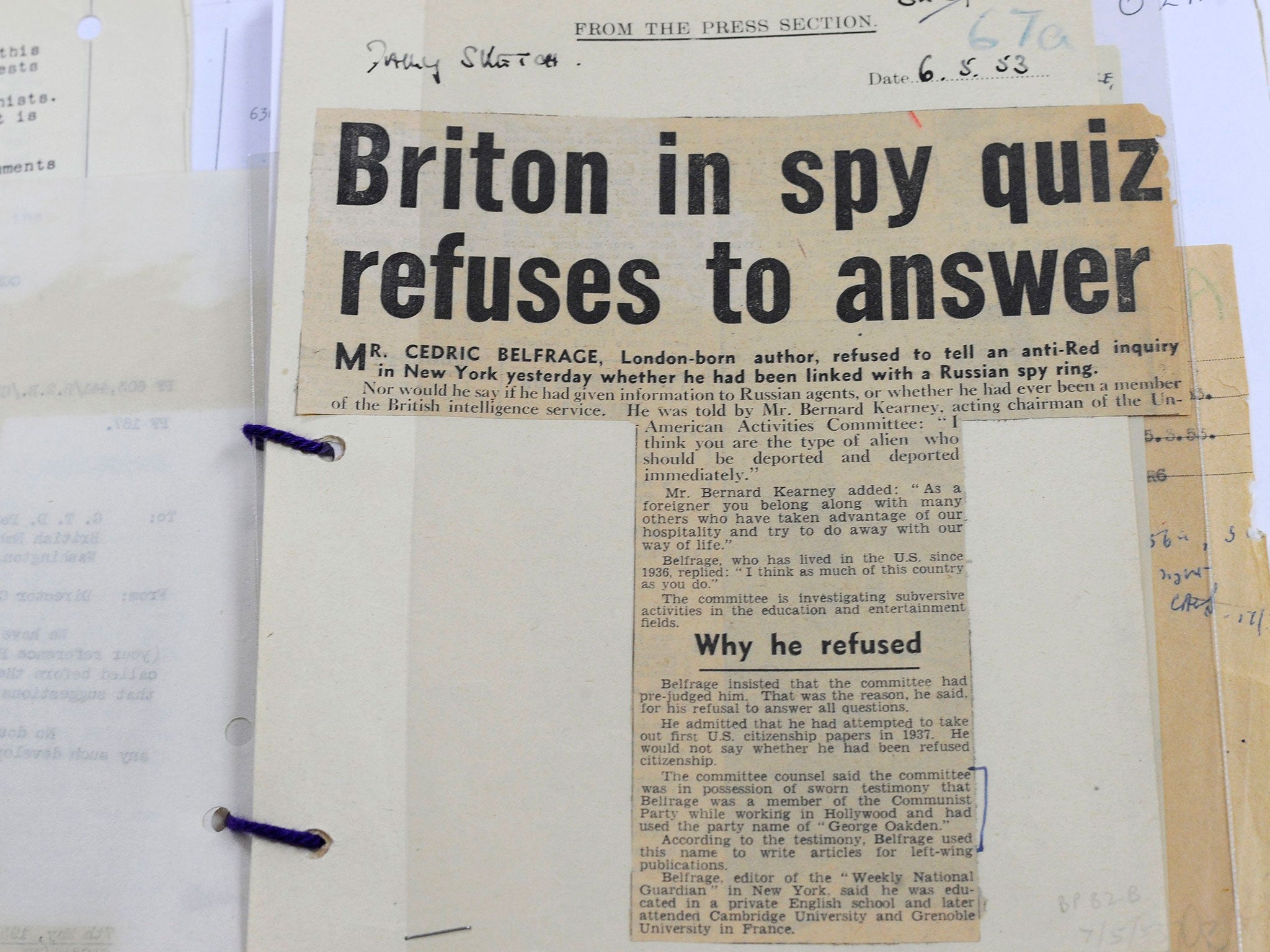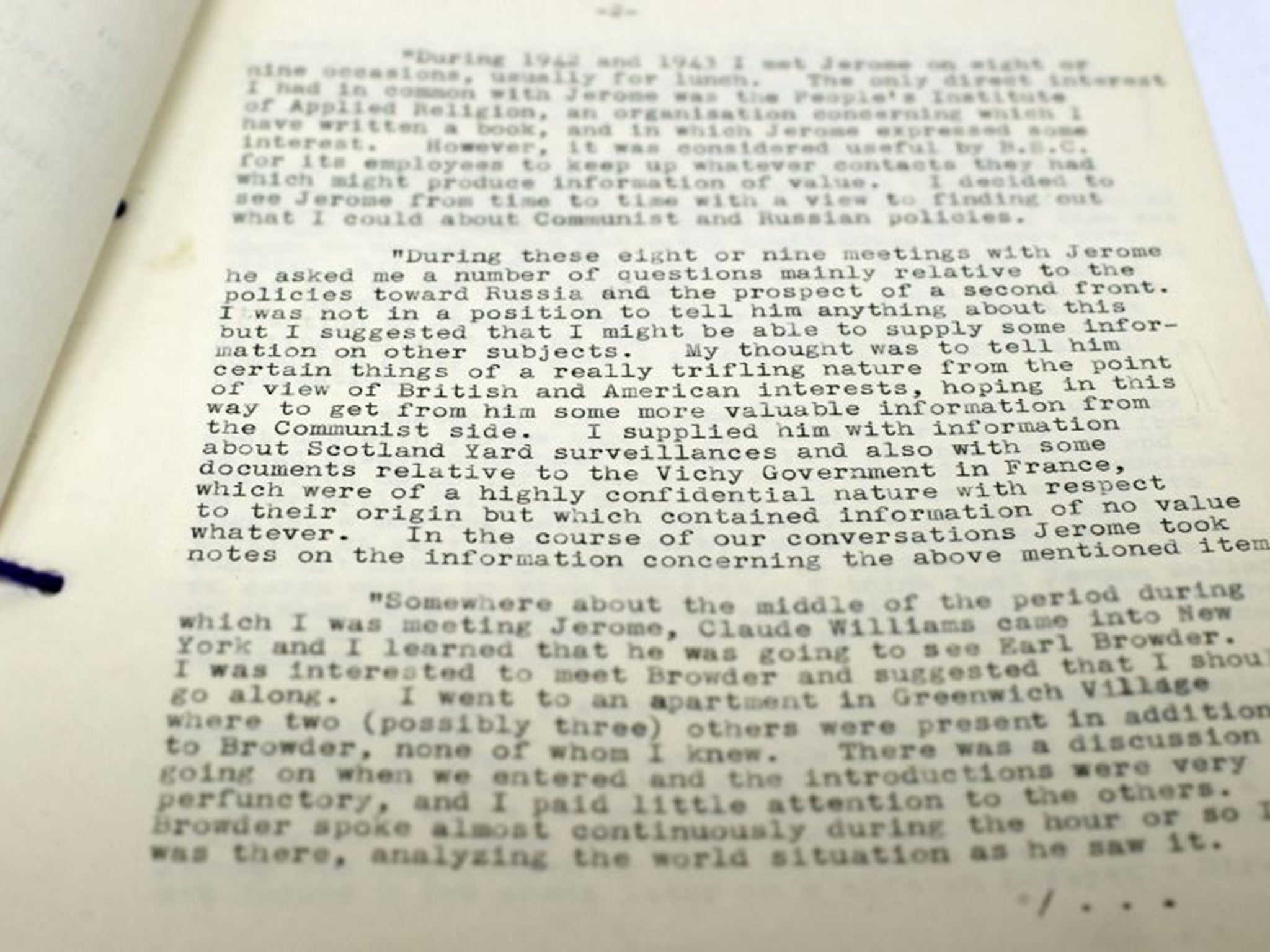Daily Express journalist was one of Soviet Union's top spies, secret documents reveal
The previously unseen MI5 records show that Soviet intelligence considered Cedric Belfrage to be one of its star performers

Your support helps us to tell the story
From reproductive rights to climate change to Big Tech, The Independent is on the ground when the story is developing. Whether it's investigating the financials of Elon Musk's pro-Trump PAC or producing our latest documentary, 'The A Word', which shines a light on the American women fighting for reproductive rights, we know how important it is to parse out the facts from the messaging.
At such a critical moment in US history, we need reporters on the ground. Your donation allows us to keep sending journalists to speak to both sides of the story.
The Independent is trusted by Americans across the entire political spectrum. And unlike many other quality news outlets, we choose not to lock Americans out of our reporting and analysis with paywalls. We believe quality journalism should be available to everyone, paid for by those who can afford it.
Your support makes all the difference.A British journalist who worked for the Daily Express was considered by the Soviet Union to be one of its most valuable agents during the Second World War, according to secret documents.
Cedric Belfrage, who was the highly-paid film and theatre critic of the Express titles during the 1930s, passed intelligence on British spying methods to Moscow, along with highly-sensitive documents about Vichy France as well as British policy in the Middle East and Russia.
The previously unseen MI5 records show that Soviet intelligence considered Belfrage, who became a committed Communist after a visit to Moscow in 1936, to be one of its star performers, at one point rating him above Kim Philby.
During the war, Belfrage joined British Security Co-Operation (BSC), a body jointly set up by MI6 and Winston Churchill’s Special Operations Executive whose role included mobilising pro-UK support in the United States prior to the Pearl Harbour attacks.
Belfrage went on to take up a psychological warfare role within the Allied headquarters in France following D-Day but was eventually exposed during an American investigation into a Soviet agent, Jacob Golos.
The MI5 files, released at the National Archives in Kew, west London, show for the first time the type of intelligence the former journalist was passing to Golos via his Communist contacts, including a report from Scotland Yard on training methods for spies.
The document also contained notes from “prominent burglars in England” on techniques including opening safes, doors and “other protective devices”.

Christopher Andrew, the former official historian of MI5, said the material was considered to be “extremely valuable” by Moscow. Professor Andrew said: “For a year or so in the middle of the Second World War, Soviet Intelligence even rated [Belfrage] ahead of Philby.”
When he was eventually questioned by the FBI in 1947, Belfrage acknowledged he had leaked information to contacts including a prominent Communist called VJ Jerome. But the Briton insisted it had been of little real intelligence value and was part of his own efforts to infiltrate Soviet networks.
He told his interrogators: “My thought was to tell him certain things of a really trifling nature from the point of view of British and American interests, hoping in this way to get from him some more valuable information from the Communist side.”
Belfrage, who went on to try to make his career in America, was eventually brought before Senator Joseph McCarthy’s Un-American Activities Committee in 1953 but he never faced trial in the US.
In Britain, MI6 said it would have an “account to settle” with Belfrage if he ever returned to the UK but it later admitted it had insufficient evidence to bring a case.
Subscribe to Independent Premium to bookmark this article
Want to bookmark your favourite articles and stories to read or reference later? Start your Independent Premium subscription today.